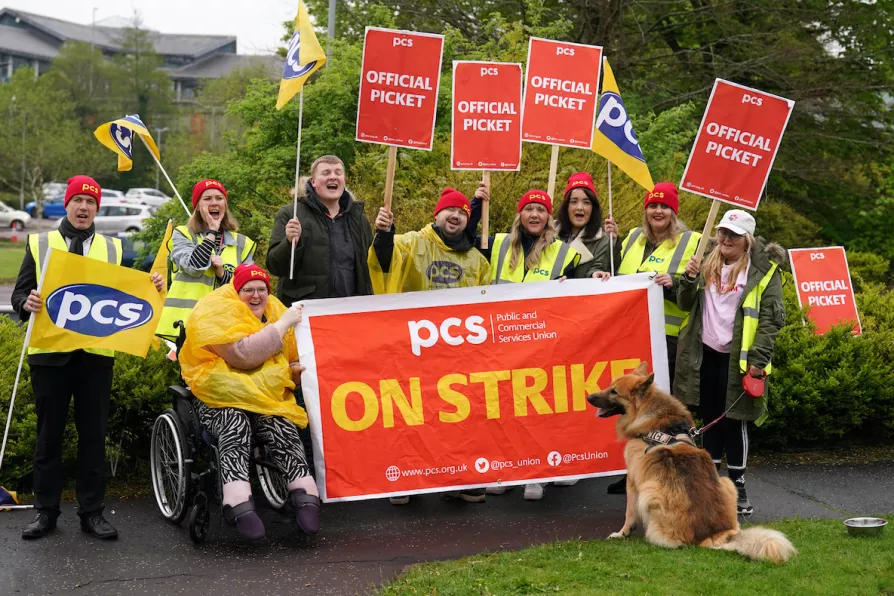LUKE FLETCHER outlines Plaid Cymru bold plans for wide-ranging policy consultations with trade unions in Wales

 UPSURGE: A PCS on the picket line in May this year
UPSURGE: A PCS on the picket line in May this year
THE recent groundswell of wage militancy across the public, private and privatised sectors did not drop out of a clear blue sky — it has been almost 15 years in the making.
The challenge of decades-long wage theft, made worse now by profiteering energy companies driving an inflationary spiral, simply has not lent itself to a “servicing model” trade union response, and needs a collective organising one, centred on workplaces.
Unions were perhaps better equipped to capture this wave of working-class militancy than they might have been — but now is the time for the “organising agenda” to deliver on its promise.

It is only trade union power at work that will materially improve the lot of working people as a class but without sector-wide collective bargaining and a right to take sympathetic strike action, we are hamstrung in the fight to tilt back the balance of power, argues ADRIAN WEIR

KEVAN NELSON reveals how, through its Organising to Win strategy, which has launched targeted campaigns like Pay Fair for Patient Care, Britain’s largest union bucked the trend of national decline by growing by 70,000 members in two years












